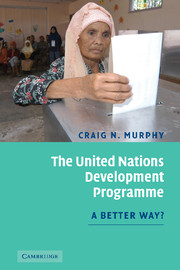Book contents
- Frontmatter
- Contents
- List of figures
- List of tables
- Foreword by Kemal Dervis
- Acknowledgements
- 1 Not the standard image
- 2 Development and the United Nations
- 3 Institutions for practical solidarity
- 4 Decolonization and economic transformation
- 5 Lewis in Ghana and after
- 6 Capacity, consensus, crisis, and consequences
- 7 Engaging liberation movements and revolutionary states
- 8 A learning organization: women, Latin America, and Africa
- 9 ‘Bottoms up’ development helps make UNDP a mammal
- 10 Working for ‘a holy man’ after the cold war
- 11 ‘Fabian socialists do not make the cut’
- 12 ‘Ploughing the sea’? UNDP and the future of global governance
- Index
4 - Decolonization and economic transformation
Published online by Cambridge University Press: 08 January 2010
- Frontmatter
- Contents
- List of figures
- List of tables
- Foreword by Kemal Dervis
- Acknowledgements
- 1 Not the standard image
- 2 Development and the United Nations
- 3 Institutions for practical solidarity
- 4 Decolonization and economic transformation
- 5 Lewis in Ghana and after
- 6 Capacity, consensus, crisis, and consequences
- 7 Engaging liberation movements and revolutionary states
- 8 A learning organization: women, Latin America, and Africa
- 9 ‘Bottoms up’ development helps make UNDP a mammal
- 10 Working for ‘a holy man’ after the cold war
- 11 ‘Fabian socialists do not make the cut’
- 12 ‘Ploughing the sea’? UNDP and the future of global governance
- Index
Summary
On a crisp autumn day in 2004, David Owen's son, Roger Owen, a Harvard professor of history nearing 70, fondly recalled visiting his father's offce on a similar day forty years before. The then Technical Assistance Board (UNTAB) executive chairman beamed as he pointed out to his son a map of the world rapidly filling with pins. Each large coloured pin represented a UN expert, the colour indicating ‘whether he was an agronomist, an engineer, a meteorologist, a malariologist or other specialist’. Smaller pins ‘denoted the award of a fellowship to the national of a developing country’. In 1965, David Owen wrote about his ‘growing satisfaction … from the story that map has told’, with its ‘bands of colour’ growing ‘denser as Governments have requested more UN assistance, and becoming brighter as more international Agencies have entered the field’. If the pins had accumulated from year to year, there would have been more than 60,000 when Owen wrote about them with such pleasure.
The map exemplifies the way in which the UN technical assistance offcers of the 1950s and 1960s judged themselves – by their ability to help to build ever greater expert capacity within the developing nations. Later, the generation that replaced the staff first assembled by David Owen would want to know more, especially whether and how the transfer of expert knowledge really did contribute to most people's abilities to make the most out of their own lives.
- Type
- Chapter
- Information
- The United Nations Development ProgrammeA Better Way?, pp. 82 - 113Publisher: Cambridge University PressPrint publication year: 2006



